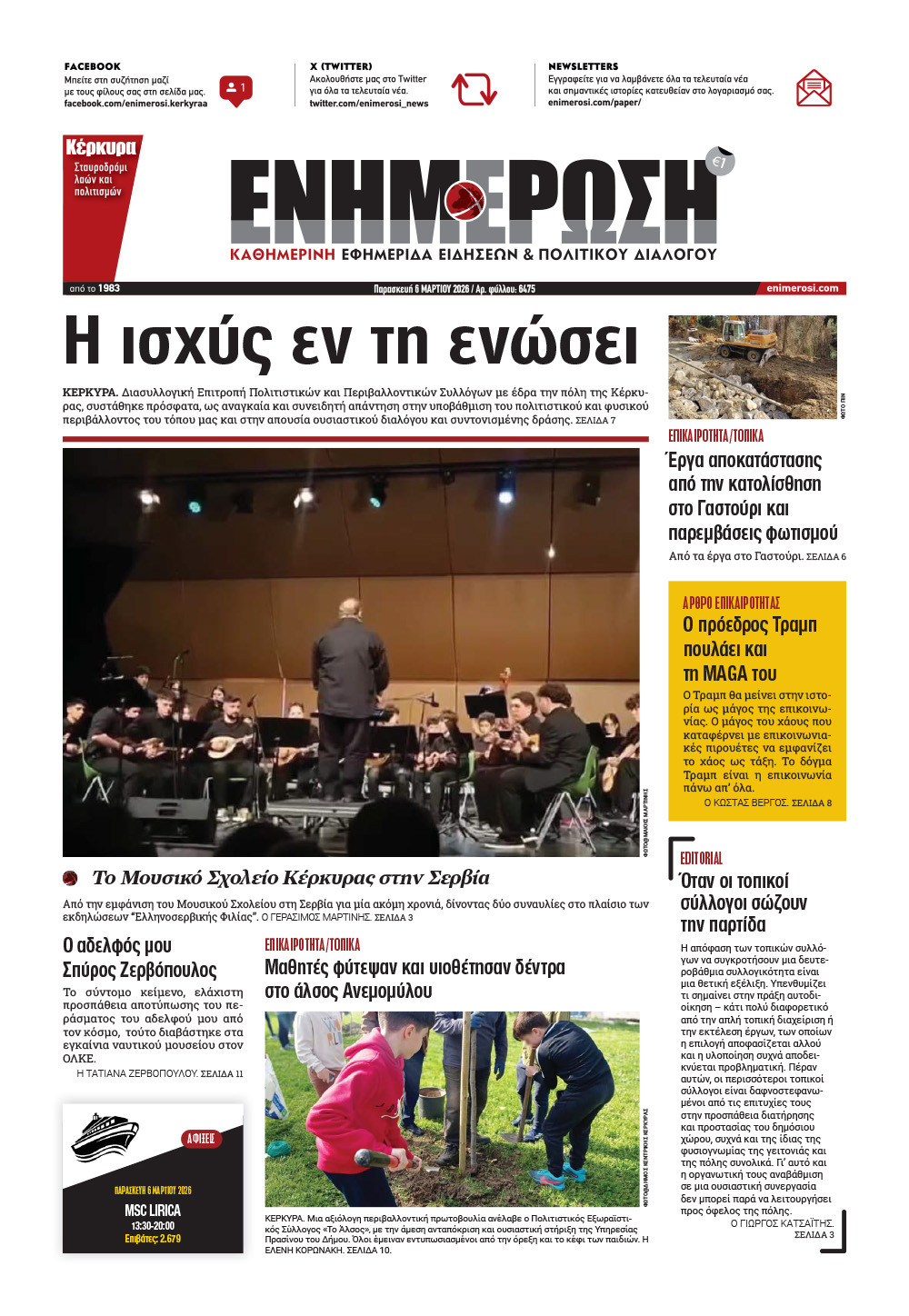Advice for dealing with African Dust

CORFU. Advice from Central Corfu and Diapontia Islands Municipal Public Health Department on dealing with African dust.
Advice from Central Corfu and Diapontia Islands Municipal Public Health Department on dealing with African dust.
Protective measures against African dust
There have been frequent occurrences of the phenomenon of African dust coming our country recently, which could affect the health of citizens and especially vulnerable groups of the population.
The phenomenon is expected to recur periodically and is observed during specific seasons. With the main focus on protecting public health, the National Health Organisation is providing information and recommending measures for protection against African dust.
A. GENERAL INFORMATION
What are African dust clouds and what are they made up of?
The long-range (thousands of kilometres) transport of desert dust around the planet is a natural phenomenon that plays a central role in the composition of the atmosphere and the environment, as well as in shaping weather conditions and climate. Dust transport episodes are usually seasonal. In Europe and especially in Greece, dust episodes are more frequent in spring.
Who might be at risk from African dust?
African dust can affect anyone, but the risk is greater for vulnerable population groups, such as:
- Children and infants
- Individuals over 65 years old
- People with chronic respiratory diseases, mainly bronchial asthma and Chronic Obstructive Pulmonary Disease (COPD)
- People with chronic cardiovascular diseases
Possible symptoms from exposure to African dust
Exposure to African dust has been associated with:
- Irritation of the eyes (itchiness, watery eyes, tearing)
- Irritation of the upper respiratory tract, such as the nose and oral cavity (runny nose, sneezing, sore throat, hoarseness)
- Irritation of the lower respiratory tract (difficulty breathing or dyspnea, persistent cough with or without expectoration, chest pain)
- Exacerbation of allergic reactions (skin redness, itching)
African dust has also been linked to increased visits to Emergency Departments of hospitals for:
- Exacerbation of bronchial asthma
- Exacerbation of Chronic Obstructive Pulmonary Disease (COPD)
- Acute cardiovascular events
B. ADVICE FOR THE PUBLIC
What can you do to protect yourself and your family?
- Stay informed. Monitor air quality reports and weather forecasts to know when African dust levels are expected to be high.
-
When dust levels are high, take measures:
- Limit outdoor activities.
- Minimise unnecessary outdoor activities or travel.
- Stay indoors, such as at home or in the office. If you need to go outside, minimise time spent outdoors.
- Use a car for transportation. It's recommended to keep windows closed and use the recirculation mode for ventilation.
- Avoid strenuous physical work or exercise, such as cycling, running, or walking outdoors, sports training, or outdoor competitions (swimming pools, fields, stadiums). Move such activities to suitable indoor sports facilities or postpone them for other days, if possible.
C. GUIDELINES FOR PROTECTING PUPILS AT SCHOOL
Avoid and limit outdoor activities.
- Move physical education classes from outdoor spaces to suitable indoor sports halls. If this is not possible, physical education classes can be held in the children's regular classroom or in safe indoor school areas.
- Postpone any educational visits (e.g., to theatres, museums) or school trips.
- Advise students to avoid activities involving intense physical exercise, such as football matches or other competitive sports during breaks, and encourage alternative activities.
Deputy Mayor Spyros Galanis




